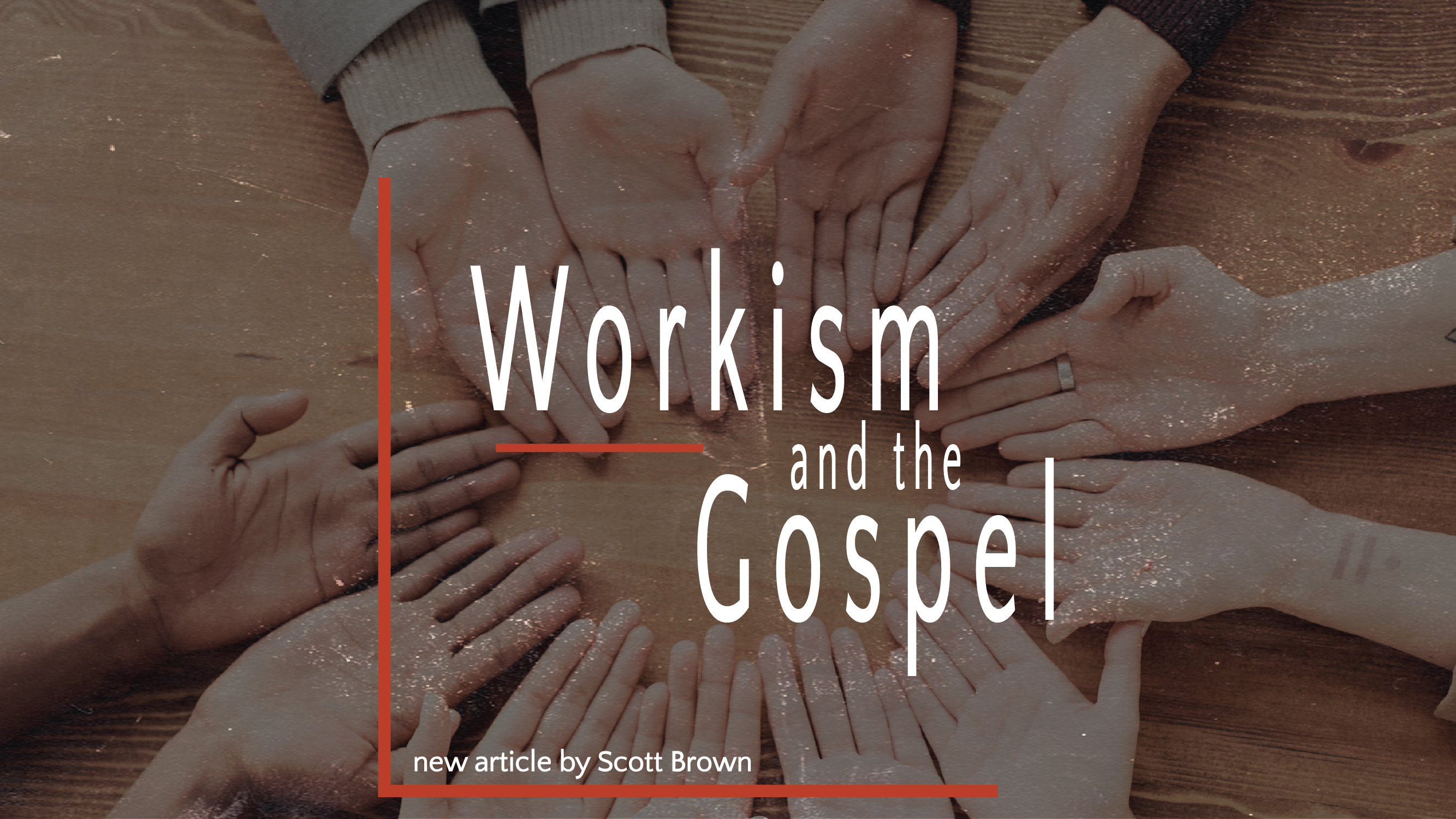Workism and the Gospel

People used to ask me where I worked, and back when I worked at a convenience store in 2016, I would respond with, “Oh, I just work at Kwik Trip.” Their next reply was usually a lot more enthusiastic & upbeat than mine was – I wasn’t really thrilled about my position in life at that time. How did I go from that kind of devaluing response to finding joy in a job where I threw away dirty diapers and cleaned up peoples’ spilled food?
Well, to borrow a popular line from The Chosen, “I was one way and now I am completely different. And the thing that happened in between was Him.”
Workism: The New Idol of Our Hands
Workism is a flow of our worship that exits our heart and puts itself into the work of our hands. Rather than traveling upward, from our hearts to God, it travels downwards, from our hearts to our hands. This puts us in an awkward position because it transfers the weight of savior from Jesus to our work, thus creating workism: the worship of our work.
This is awkward because it is thoroughly unstable & unsustainable. The grace of God was the power meant to hold our salvation, not our work. Work cannot bear the weight that Jesus took for us, yet this is the subtle lie that whispers workism into our lives.
I think the enemy would love to see us continue to be blind to how much we value ourselves based on our work. I think he would love nothing more than to see us squabble constantly for better pay, hours, and more vacation time while the Kingdom’s power stays stagnant in the marketplace.
Workism disables our Kingdom influence. It distracts us from the meat of the Gospel by treating us to a little more sugar here, and a little more there, until we become too sick to eat the meal we most desperately need. It’s addicting, and so is sugar.
We may not frequently forge big, brazen statues of golden calves anymore, but we certainly have a similar response when we decide to put our trust in the work of our hands and not in the power of God.
Martin Luther has a profound quote that reads, “Whatever your heart clings to and confides in, that is really your God, your functional savior.”
So, let me ask you, what does your heart cling to?
Workism says that your job is the defining factor of your value and that you must work to be loved. However, we find that the opposite is true in the Gospel. It is because of the love of Christ, and the work that He has already accomplished, that we are able to work.
Therefore, rather than working to earn our value, we can work because we are valued. That’s the power of the Gospel, to change lives!
Workism or Work as Worship
Work is a created thing. It was something that God gave man to do in the genesis of life. Work was never meant to become something that we worship, but because of the wily nature of workism, we are often in need of a heart check with our work.
Am I feeling less than others because of my work? Do I feel like my value comes from my title or my pay? Or maybe I am thinking that if I worked at Mayo Clinic like everyone else that I’d get some respect as a person. (An ode to Rochester, MN).
This is an example of workism.
Yet, what the Gospel uniquely does is take a broken value system and completely rewire it. Instead of working to earn value, we now work from being valued already. We can know we are valued “because God’s love has been poured into our hearts through the Holy Spirit who has been given to us.” (Romans 5:5). Therefore, because of what Jesus already did, we now have access to redeemed work. Not just the perspective shift, but we have assurance that we are loved by the Almighty God of the universe, and therefore, as Erik Cooper writes, we are able to work from love, not for love (Missional p. 105).
The next step for us is redirecting our attention from our hands to heaven. By “setting our mind on things above” (Colossians 3:2), we are directing ourselves away from workism and setting ourselves toward proper alignment with God’s will for our work.
I mentioned earlier the comparison of my previous work attitudes. At Kwik Trip, I had not received the power of the Gospel. I still defined myself, at least partially, by my work and my paycheck. Those are some nasty thorns too, by the way. I am still working on sewing up some wounds from the concept of “I am defined by my paycheck”. It affects more than just your work.
Years later, after receiving the Gospel, it came time to throw away some seriously nasty bags full of diapers (which I can still picture vividly to this day). With a new sense of value and assurance, I was honored to do this because I knew that I was working from a place of being already loved.
God positioned me there, it wasn’t just a job. God gave me a role, something to do, and He told me that it was for Him that I was working. That gives both myself and my work inherent value, wherever I go. And that’s in the Bible, too – not just in personal revelation.
Following that value, I was praying Colossians 3:17 & 23, reminding myself that I was working for the Lord and not for man. I was no longer entangled in workism, but I was now worshipping God through my services as a janitor. And I had joy in doing it, too!
That’s an example of work as worship.
If you had to take inventory of your heart today, where do you think you are? Workism or working as worship?
Revolutionary Work
What if we all began to slowly shift our hearts from workism into working as worship to God? Imagine the impact we could have as Kingdom envoys when everything we did, we did as unto the Lord. What kind of a revolution would we begin in the marketplace?
Revolutionary work begins with a shift in our worship. It begins with a transition from God as overseer of your work to God as provider and work as a response. What if we responded to God with worshipful work?
Workism is a fallen nature experience. It was never in God’s plan to put salvific weight onto our careers or to put our imago Dei value into our titles.
God desires that we all would return to the heart of worship – honoring Him in all that we do. That’s loving God with all of who we are and all that we have, including our work. That’s workism realigned into work as worship. That’s revolutionary work.
For more on where your work fits into God’s story, and how to work from a place of being loved rather than working for love, read Erik Cooper’s new book: Missional Marketplace.






